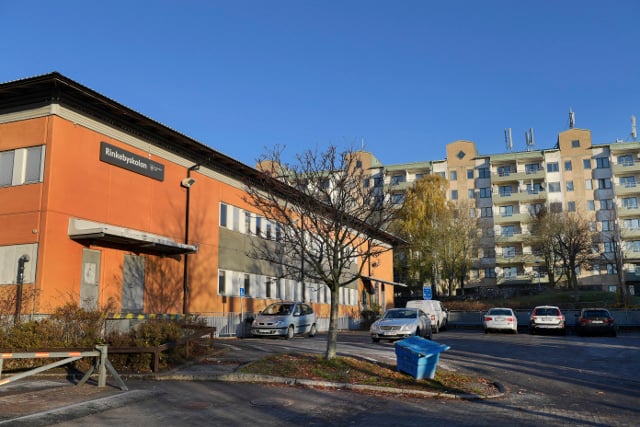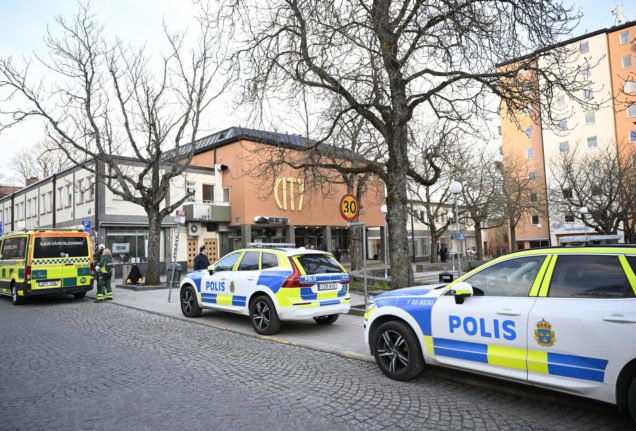The “Relationship with the judiciary in socially vulnerable areas” report by Sweden's National Council on Crime Prevention (Brå) used interviews with residents, police, business owners and public sector employees to assess the situation in the areas described by authorities as vulnerable.
One in three residents of the 61 areas say they feel there are significant problems with open drug dealing, as well as shootings. Many say certain individuals or groups prevent them from moving freely.
“The research shows problems in these areas that are likely to be exceptional in comparison to other residential areas. Open drug dealing occurs, while property damage, littering and serious traffic crimes impact the living environment. Some of the areas suffer serious violent crime for periods,” the report explains.
“Many residents feel insecure around groups of young men who spend a lot of time outside in the areas. Even if it's only a small proportion of them who are threatening or commit crimes, it's often difficult for the residents to distinguish which situations and people to be wary of,” Brå's Erik Nilsson told The Local.
“The interviews show that the difference between times of the day and even between areas is significant.”
READ ALSO: Vulnerable areas increase in Sweden
According to Brå's figures, 38 percent of residents in socially vulnerable areas say they feel unsafe while out at night (compared to around 27 percent in other urban areas).
Some of the problems in the areas are highly localized, so people who live on different parts of the same street may come across crime to completely different extents. For example some residents said they feel safe, but make significant adjustments to their daily lives in order for that to happen, such as avoiding specific places or people.
The safest people appear to be those who know the young men who spend their time outside at night, and by extension know which situations to avoid.
Women in particular are suffering, with the majority living in the areas (55.3 percent) saying that they feel unsafe. The male dominance of public spaces is one of the contributing factors, Brå's research suggests.
“It's a pattern that is also reflected across wider society. But much suggest that a contributing factor is that these areas are dominated by men when it comes to public spaces. Not least in the evenings, when few women and girls move around outdoors. That can of course be a result of insecurity, but it can also a contributing factor to it,” Nilsson said.
The report highlights signs of parallel societies in the areas, with law and order problems impacting confidence in the police among residents. Only half of those living in the areas say they have faith in the police, which is a lower proportion than in other urban areas.
It is particularly challenging for police to build and sustain confidence as views of them vary according to age groups: the elderly feel the police are too soft, while young men think they are treated unfairly.
READ ALSO: Working on the front line in Stockholm's vulnerable suburbs
Many people who live in the suburbs also say they feel they have been forgotten about or are not treated the same as those who live in other places.
“We think the judicial system needs to develop its methods, work with the long-term in mind, and learn from successful strategies in different parts of the country. What appear to be less serious problems like for example traffic crimes or property damage are easily overlooked because of more serious crime, but they have a significant impact on the way residents see the police capacity (to act), and by extension their willingness to turn and cooperate with the police,” Nilsson pointed out.
“Many residents express feeling of being forgotten by society at large, and want a greater presence from authorities – not just police – in the areas.”
READ ALSO: Sweden in focus, an in-depth look at what makes this place tick



 Please whitelist us to continue reading.
Please whitelist us to continue reading.